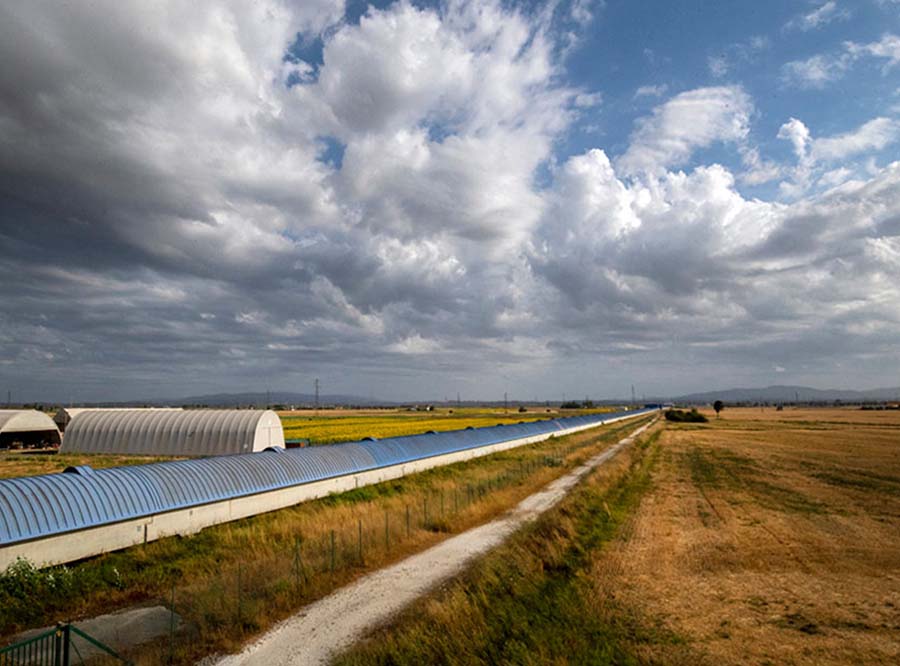Other seismic Noises
Violent Earthquakes
Strong enough earthquakes (where the effective strength depends on the earthquake magnitude and on the distance of its epicenter from the Virgo site) stress the Virgo control system, such as the working operation point can be lost and the data-taking interrupted. Such breaks can last long: prior to re-acquiring the control of the whole detector, one may have to wait for the excitation, created by the abrupt loss of control or directly by the excess seismic noise, to be damped.In order to estimate whether a given earthquake could overcome or not the control of the detector and in order to minimize the possible interruption, Virgo is receiving early warnings from the US Geological Survey (USGS). For earthquakes which are far enough from EGO, the warning is indeed “early”, meaning that it is received before the seismic waves have arrived on site. While there is no way to shield the detector away from these, this extra delay can be used to mitigate the effect of potentially strong seismic waves. In addition, a collaboration with the Italian Istituto Nazionale di Geofisica e Vulcanologia (INGV) should lead to the use of a second earthquake early warning system, to supplement the USGS one. This will provide a more complete coverage of the earthquakes and should allow to receive earlier the earthquake alerts for those which are close to Italy and hence to Virgo.
Bad weather

Another source of disturbance for the Virgo detector is bad weather, namely high winds and intense sea activity: the waves hitting the Tyrrhenian shoreline produce seismic noise that propagates to the EGO site, about 10 kilometers away. This tremor of the Earth’s surface is well-known by geophysicists and called a sea microseism. High sea activity periods correspond to a lower sensitivity of Virgo due to higher seismic noise at the site. Moreover, sea microseisms induce short transients of noise (glitches) that impact the quality of the data and produce signals which may be misinterpreted as gravitational waves (false alarms). Sea microseisms can also affect detector components in general, increasing for instance the noise due to scattered light, reducing the accuracy of the detector control and hence its sensitivity to gravitational waves.
Lightning strikes can also disturb Virgo: both as an electromagnetic interference and, at a delayed time, as sound pressure waves which induce vibrations of the ground and of the detector’s mechanical components.